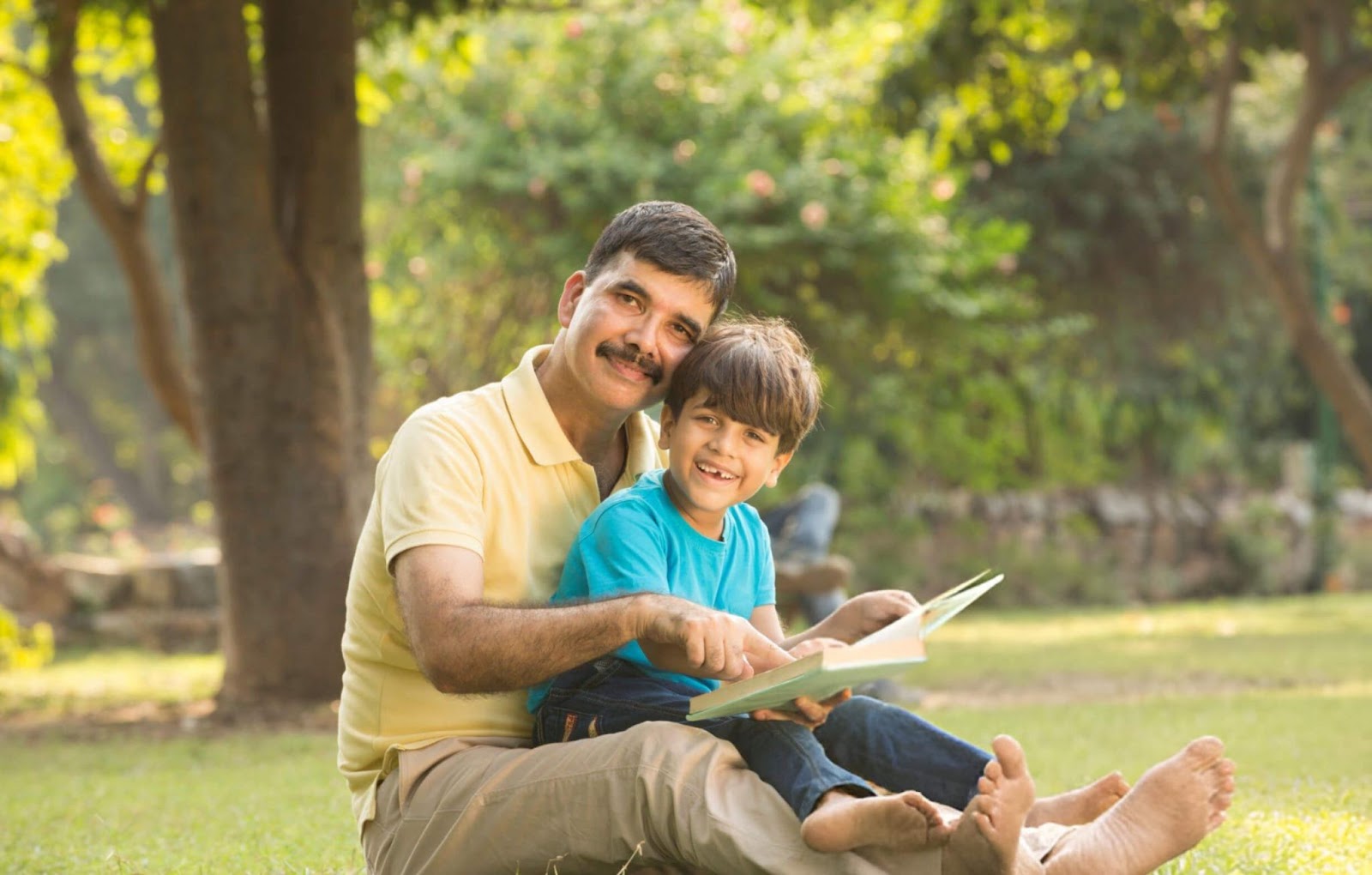It is quite magical to see your child beaming when he or she reads his first child to parent poem. Be it crayoned on construction paper or spoken subtly in the dark before bedtime – but at that time, their words are gold, they are golden fibers connecting your family tapestry even further. These child to parent poem are not merely cutesy childhood games; they are a formidable weapon in the arsenal of creating emotional bonds between the generations and producing memories which will make your heart sing with pleasure in many years to come.

Imagine this: you are having one of those draining days when everything seems to be falling apart, and your little one just gives you a piece of paper that is crumpled up and has a poem that they wrote specifically about you. Then suddenly the world is not turning so fast, is it? What a miraculous force of poetry in parent-child relationship: it can make the most mundane things into the most memorable.
The Heart-Deep Connection Between Poetry and Family Bonds
When children express their feelings through child to parent poems, something beautiful happens in their developing minds and hearts. Poetry is a powerful connector, and it can be a great way to try to build deeper connections with your parents. It gives us a unique way to share our experiences, memories, hopes, disappointments, and emotions. This emotional expression through verse creates a safe space for children to articulate feelings they might struggle to communicate otherwise.

Research consistently shows that children who have secure attachments with their parents have better outcomes in many areas of life. For example: Children with secure attachments are more likely to develop better emotional regulation skills. They tend to be more confident and independent. When children write poems for parents, they’re actively participating in building these crucial emotional connections.
Think of poetry as emotional GPS for kids—it helps them navigate their feelings and find the words to express what their hearts are trying to say. A child to parent poem becomes a roadmap of their inner world, offering parents precious glimpses into their child’s thoughts, fears, dreams, and deepest affections.
The beauty lies in the authenticity. Children don’t worry about perfect meter or sophisticated metaphors—they simply pour their hearts onto paper. “Mommy, you smell like cookies and sunshine” might not win any literary awards, but it’ll definitely win your heart and probably make you tear up a little (or a lot).
Different Flavors of Parent-Child Poetry: From Everyday Love to Special Celebrations
Everyday Appreciation Poems
The most common type of poem for parents springs from daily life moments. These verses capture the ordinary magic of family routines—morning hugs, bedtime stories, shared laughter over dinner mishaps. Children often write about:
- How safe they feel in their parent’s arms
- Favorite family traditions and memories
- Appreciation for daily care and love
- Simple observations about their parent’s habits and quirks
These everyday poems of parenting from a child’s perspective offer parents invaluable insights into what moments truly matter to their little ones. Sometimes it’s not the expensive toy or elaborate vacation that sticks—it’s the way you make funny voices while reading stories or how you always check for monsters under the bed.
Anniversary Poems for Parents: Celebrating Love Through Young Eyes
When children witness their parents’ love story, they often become inspired poets themselves. Anniversary poems for parents written by children carry a special sweetness because they’re observing love through innocent, hopeful eyes. These verses often include:
- Observations about how their parents show love to each other
- Gratitude for having a stable, loving home
- Wishes for their parents’ continued happiness
- Sweet memories of family celebrations and traditions
A typical child’s parents poem for an anniversary might say something like, “Thank you for loving each other so we can be a family,” capturing the profound connection between parental love and family security in beautifully simple terms.
Special Occasion Verses
Birthday poems, Mother’s Day verses, Father’s Day tributes—these special occasion poem on parents pieces often become treasured keepsakes. Children naturally want to celebrate the people they love most, and poetry gives them a creative outlet for these big feelings.
Poems for parents on their anniversary or other milestones often showcase children’s growing understanding of relationships and commitment. They begin to grasp concepts like partnership, teamwork, and lasting love through their observations of family dynamics.
The Single Parent Journey: Poems That Celebrate Strength and Resilience

Single parent mothers poems and verses dedicated to solo fathers carry their own unique emotional weight and beauty. Children raised by single parents often develop a particularly keen awareness of their parent’s strength, sacrifice, and dedication. These single parent poems frequently touch on themes of:
- Deep admiration for their parent’s courage and determination
- Gratitude for the extra love and attention they receive
- Recognition of their parent’s dual role as both nurturer and provider
- Understanding of the special bond formed through shared challenges
The emotional depth in these poems can be breathtaking. A child might write, “Mommy, you’re my superhero because you do the job of two people but love me like ten people.” These verses often become powerful affirmations for single parents who sometimes question whether they’re enough.
Research indicates that about 23% of children under 18 live with a single parent, making single parent poems an important category that deserves recognition and celebration. These families create their own unique traditions and bonds, often resulting in particularly touching poetic expressions.
The Magic Behind the Words: Why Children’s Poetry Matters So Much
When children write poetry for their parents, they’re developing multiple crucial skills simultaneously. Language development accelerates as they search for the perfect words to express their feelings. Emotional intelligence grows as they identify, process, and articulate complex emotions. Creative thinking flourishes as they experiment with imagery, rhythm, and structure.
But here’s the really beautiful part—child to parent poems also teach empathy. As children consider their parents’ feelings, experiences, and perspectives, they develop deeper understanding and compassion. They begin to see their parents not just as caregivers, but as real people with their own hopes, dreams, and challenges.
The therapeutic value of this creative expression cannot be overstated. Poetry gives children a healthy outlet for processing complex family dynamics, changes, or challenges. Whether they’re celebrating joy or working through difficult emotions, verse becomes a safe space for exploration and expression.
Creating the Perfect Environment for Poetic Expression
Want to encourage more poems for parents in your household? The key is creating an atmosphere where creativity feels natural and celebrated, not forced or evaluated. Here are some gentle ways to nurture your child’s poetic voice:
Make writing materials easily accessible. Keep paper, crayons, markers, and pencils within reach. Sometimes inspiration strikes at unexpected moments, and you want to be ready to capture those precious thoughts.
Share your own attempts at poetry. Write silly verses about your day or create simple rhymes about family pets. When children see adults playing with language, they feel permission to experiment too.
Read poetry together regularly. Explore different styles, from classic children’s poets like Shel Silverstein to contemporary voices. Discuss what you notice about rhythm, rhyme, and imagery. Ask questions like, “How does this poem make you feel?” or “What pictures do you see in your mind?”
Celebrate all attempts without focusing on technical perfection. The goal isn’t to create literary masterpieces—it’s to encourage authentic expression and emotional connection. Praise effort, creativity, and the feelings behind the words rather than focusing on spelling or grammar.
Create special poetry traditions. Maybe you exchange poems instead of store-bought cards for birthdays. Perhaps you write family poems together during car trips or rainy afternoons. These traditions make poetry feel like a natural part of family life.
The Ripple Effect: How Family Poetry Impacts Everyone
The benefits of child to parent poems extend far beyond the immediate moment of sharing. These verses often become treasured family heirlooms, passed down through generations. Grandparents beam with pride when they hear their grandchild’s latest creation. Siblings often get inspired to try their own hand at verse-making.
The emotional safety created through poetic expression tends to strengthen overall family communication. When children feel heard and valued through their creative efforts, they’re more likely to continue sharing their thoughts and feelings as they grow. This open communication foundation becomes especially valuable during the potentially rocky teenage years.
Parents often report that their children’s poems help them see their own parenting through fresh eyes. A simple verse about “the way Daddy sings in the shower” might remind a stressed father to embrace more joy and silliness in his daily routine. Children’s observations can be incredibly insightful mirrors for adult behavior and priorities.

Beyond the Basics: Advanced Poetic Adventures for Growing Children
As children develop stronger writing skills, their parents poem creations can become more sophisticated while maintaining their emotional authenticity. Older children might experiment with different poetic forms, explore themes like gratitude and growth, or even tackle more complex family dynamics through verse.
Some families create collaborative poetry projects where each member contributes verses to longer pieces. Others develop themed collections—perhaps poems of parenting from the child’s perspective or seasonal verses that capture family memories throughout the year.
The digital age offers new opportunities for sharing and preserving these precious creations. Some families create private blogs or digital scrapbooks featuring their children’s poetry journey. Others record video performances where children recite their verses, capturing not just the words but the enthusiasm and personality behind them.
Overcoming Common Hesitations and Hurdles
Some parents worry that their children aren’t “naturally creative” or seem reluctant to try poetry. Remember that creativity comes in many forms, and not every child will gravitate toward traditional verse. Some children express themselves better through song lyrics, rap-style rhythms, or even visual poetry that combines words and drawings.
The key is meeting each child where they are. If your little one loves jokes, encourage funny poems. If they’re fascinated by animals, suggest verses about family pets. If they’re going through a phase of being obsessed with superheroes, let them create poems about “Super Mom” or “Captain Dad.”
Don’t worry about rhyming, either. Free verse can be just as powerful and often feels more natural for beginning poets. Focus on encouraging honest expression rather than perfect technical execution. The most beautiful child to parent poem might not rhyme at all—it might simply be a heartfelt list of things they love about you.
The Long View: Poetry as a Lifelong Family Tradition
Households that adopt poetry in their lifestyles mostly discover that it becomes a valued custom that would develop and expand with duration. Six-year-old children that compose anniversary poems to their parents may keep this habit in adulthood and write more advanced poems on such occasions as anniversaries.
The art of love and appreciation in the form of creative writing can be turned into a family tradition. Adult children tend to fondly remember their younger days of poetic starts and regularly write to their children, resulting in generations of chains of expressions and emotional bonds.
These are the experiences with poetry that many adults develop interests in creative writing, literature or merely the understanding of the beauty of language. Although children may not end up being poets themselves, the process of writing the poems on behalf of the parents will make them learn that words can be used as a powerful tool and creative expression is a worthy means of processing and expressing feelings.
The road from child to parent poems is actually not all that much about the words on the pages- it is about making bridges of understanding, the emotional vocabulary, and the joy of the deep love that lives in families. When your child writes you a simple couplet about your cooking or a more complex verse about your bed time stories, make them count. They are more than adorable childhood memories, they are the foundation of a lifetime relationship and family love that will be built upon in years to come.
That is why next time when your little poet will come to you with that suspicious glint in their eyes and a piece of crumpled paper in their hand, pause everything. Hear with all your heart. Not that at that moment you are hearing a poem–you are seeing the lovely art of love being turned into words, and making memories you will carry in your heart and caress long after these little hands have lost their innocence and written poetry of their own.



